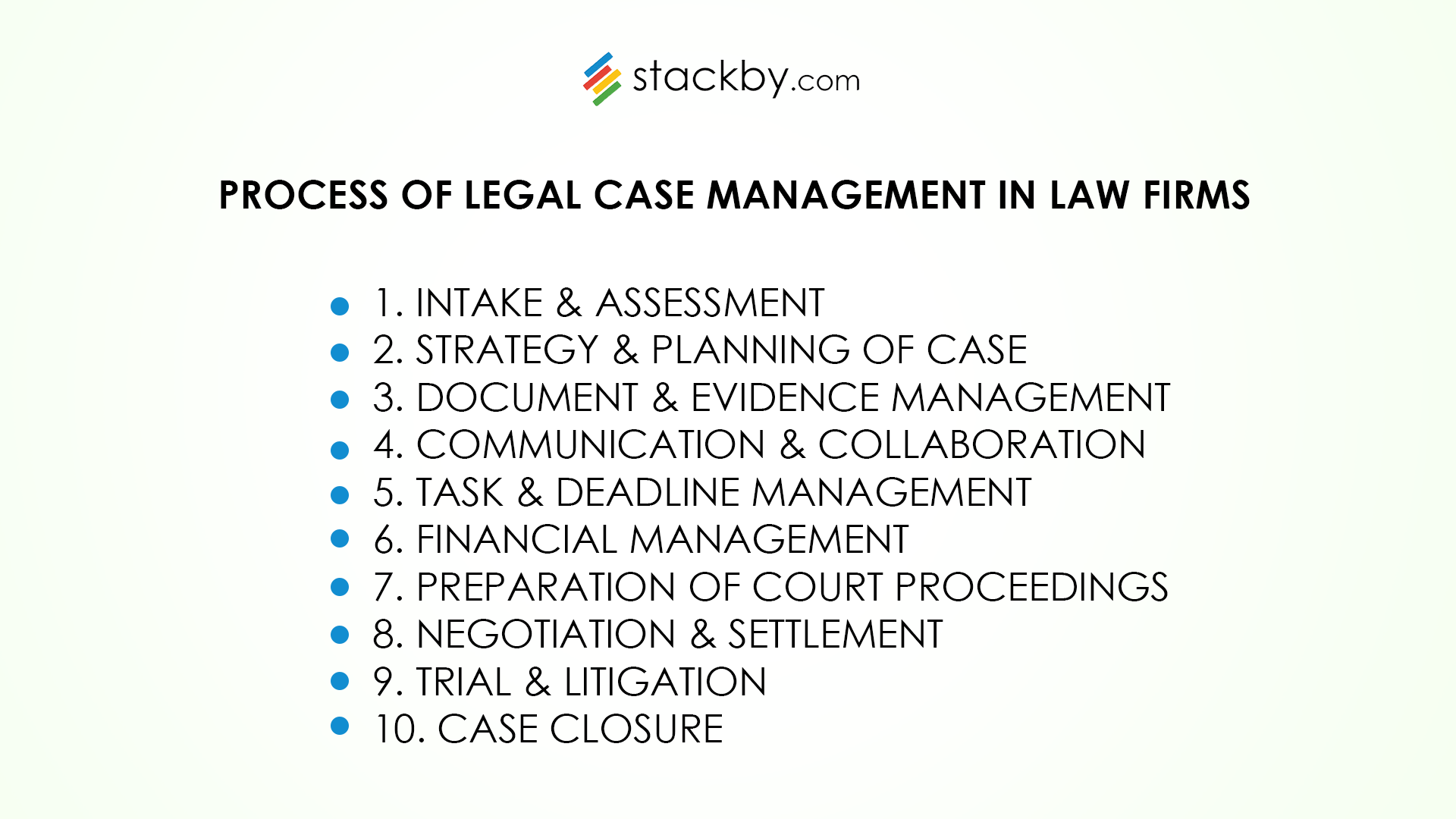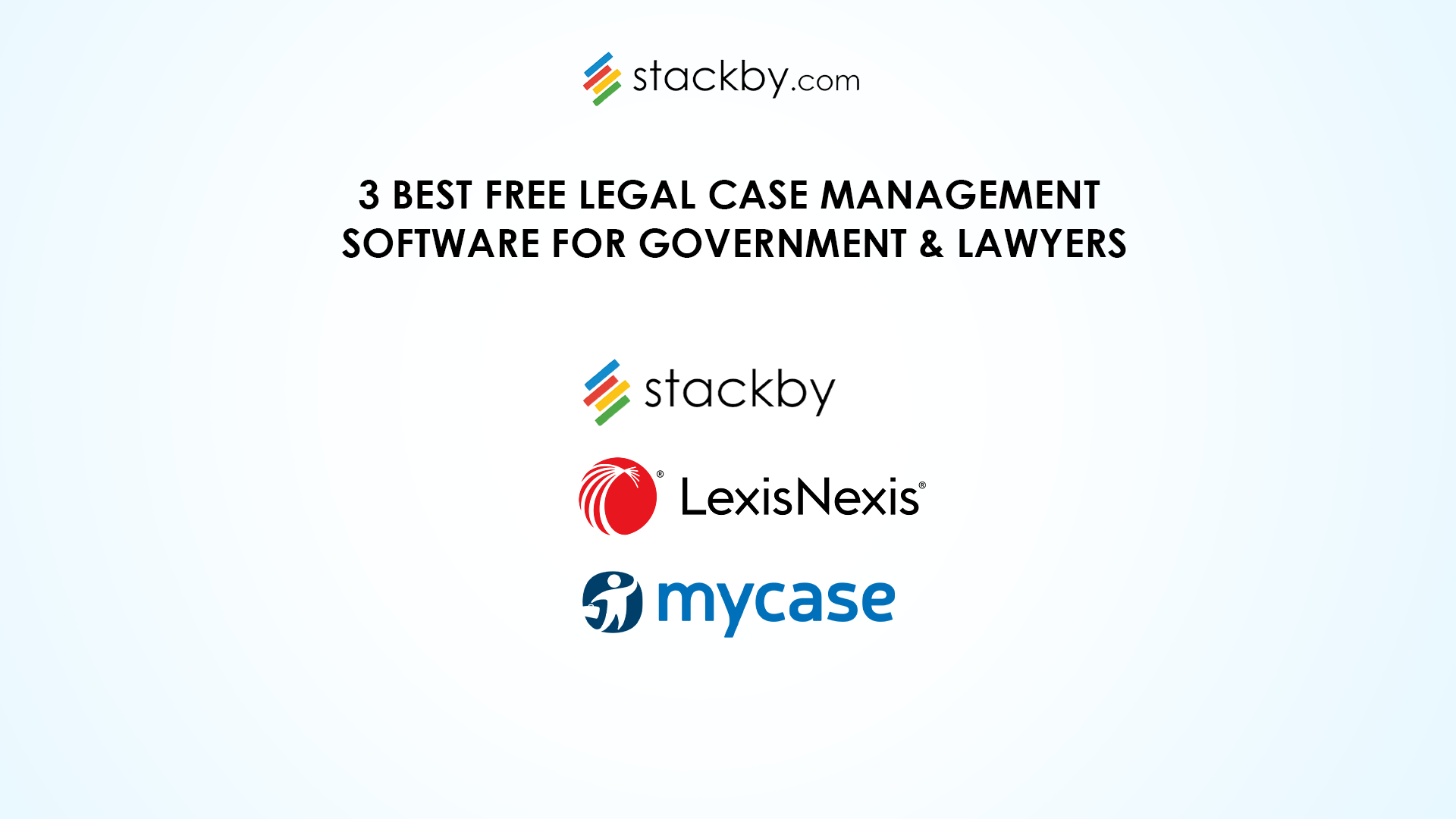Maximizing Productivity with Effective Legal Case Management Systems
Boost law firm productivity with effective legal case management systems. Streamline operations, improve workflows, and enhance client service.

What is Legal Case Management?
Legal case management is like having a super-organized assistant who never sleeps, never complains, and always knows where everything is. It's a systematic approach to handling legal cases from start to finish, ensuring nothing falls through the cracks. Think of it as your legal GPS, guiding you through the twists and turns of each case, from client intake to final billing.
But it's more than just keeping things tidy. Legal case management is about streamlining your workflow, enhancing collaboration, and ultimately, winning more cases. It's the difference between feeling like you're drowning in paperwork and surfing the waves of legal success.
Let's break it down:
- Organization: Keep all case-related information in one place
- Efficiency: Automate routine tasks and streamline workflows
- Collaboration: Facilitate teamwork and communication
- Time Management: Track deadlines and manage tasks effectively
- Client Service: Improve responsiveness and transparency
Imagine Sarah with a solid legal case management system in place. Instead of late-night panic, she'd be resting easy, knowing all her case information is organized, accessible, and ready for tomorrow's court date. That's the power of effective legal case management.
What is the Purpose of the Case Management Conference?
Now, let's talk about the court case management conference. Picture it as a pre-game huddle in the legal world. It's where all parties come together to discuss the game plan, set the rules, and agree on the play-by-play.
The judge, acting as a referee, helps set the rules of engagement, timelines, and expectations. It's like creating a roadmap for your legal journey, making sure everyone knows the route and potential pit stops along the way.
This conference is crucial because it:
- Sets the tone for the case
- Identifies key issues early on
- Establishes a timeline for proceedings
- Encourages settlement discussions
- Ensures all parties are on the same page
For example, in a complex commercial litigation case, the case management conference might involve:
- Setting dates for discovery deadlines
- Discussing potential for alternative dispute resolution
- Addressing any preliminary motions
- Scheduling subsequent conferences or the trial date
By having this conference early in the process, it can save time, reduce costs, and potentially lead to earlier resolutions. It's like having a well-planned itinerary for a trip – you know what to expect, when to expect it, and how to prepare.
Process of Legal Case Management in Law Firms
Let's break down the legal case management process into bite-sized pieces. Think of it as a recipe for legal success:

1. Intake & Assessment
This is where you gather the ingredients for your legal dish. You're collecting client information, understanding the case details, and deciding if it's a case you want to take on. It's like choosing the freshest produce for your culinary masterpiece.
In practice, this might involve:
- Initial client consultations
- Conflict checks
- Case merit evaluation
- Fee agreement discussions
- Client intake and onboarding
For instance, a personal injury firm might use a standardized intake form to gather all relevant information about the accident, injuries, and potential defendants.
2. Strategy & Planning of Case
Now you're in the kitchen, planning your meal. You're outlining your approach, setting goals, and deciding on the best course of action. This is where your legal expertise really shines.
This stage might include:
- Identifying key legal issues
- Developing case theories
- Planning investigation and discovery strategies
- Setting case milestones and objectives
For example, in a complex corporate law case, this might involve mapping out a strategy for navigating regulatory compliance issues while protecting the client's business interests.
3. Document & Evidence Management
Think of this as organizing your pantry. You're gathering all necessary documents and evidence, making sure everything is easily accessible when you need it. No more rummaging through cluttered shelves!
This could involve:
- Creating a digital filing system
- Implementing document version control for contracts and case related documents
- Setting up a secure client portal for document sharing
- Using OCR technology for searchable document archives
Imagine a class action lawsuit with thousands of plaintiffs. Effective document management would be crucial for organizing and analyzing vast amounts of evidence or a law firm managing corporate contracts with multiple versions of the documents.
4. Communication & Collaboration
This is the dinner party of legal case management. You're keeping all parties informed, collaborating with team members, and ensuring everyone's on the same page. Good communication is the secret sauce of successful legal work.
In practice, this might include:
- Regular team meetings
- Client updates via email or secure portal
- Collaboration tools for internal discussions
- Clear communication protocols for different types of information
For instance, a family law practice might use a secure messaging system to communicate sensitive information with clients, ensuring privacy and maintaining a clear record of all interactions.
5. Task & Deadline Management
Consider this your cooking timer. You're setting and tracking deadlines, assigning tasks, and making sure everything gets done on time. No more burnt casseroles in the legal oven!
This could involve:
- Using a digital calendar with automated reminders
- Task assignment and tracking tools
- Workflow automation for routine tasks
- Regular progress reviews
In a corporate law firm handling multiple mergers and acquisitions, robust task management would be crucial for meeting critical deadlines and coordinating complex transactions.
6. Financial Management
This is balancing your grocery budget. You're tracking billable hours, managing expenses, and ensuring the financial health of your case and practice.
This might include:
- Time tracking software
- Expense management tools for billable hours
- Automated calculations and billing systems
- Financial reporting and analysis
For example, a solo practitioner could use our legal case tracking and billing template to streamline their financial management, ensuring accurate billing and improved cash flow.
7. Preparation of Court Proceedings
Now you're setting the table. You're preparing all necessary documents, rehearsing arguments, and getting ready for your day in court.
This stage might involve:
- Drafting and reviewing pleadings
- Preparing exhibits and demonstratives
- Witness preparation
- Creating trial notebooks or digital equivalents
Imagine a high-stakes criminal defense case. Meticulous preparation, including organizing evidence and preparing for cross-examinations, could make the difference between conviction and acquittal.
8. Negotiation & Settlement
Think of this as taste-testing and adjusting your recipe. You're exploring settlement options, negotiating with opposing counsel, and trying to find a resolution that satisfies all parties.
This could include:
- Analyzing settlement offers
- Preparing counter-offers
- Conducting mediation or arbitration sessions
- Drafting settlement agreements
In a complex divorce case, for instance, effective negotiation might involve using our legal matter management template to analyze different property division scenarios and reach a fair settlement.
9. Trial & Litigation
This is the main course. If negotiations don't work out, you're presenting your case in court, examining witnesses, and arguing your position.
This stage might involve:
- Presenting opening and closing statements
- Examining and cross-examining witnesses
- Managing exhibits and evidence presentation
- Real-time collaboration with co-counsel
For example, in a patent infringement case, this might include using our legal case analysis template explain complex technical concepts to a jury.
10. Case Closure
Finally, dessert! You're wrapping up the case, ensuring all loose ends are tied, and reflecting on the outcome. Don't forget to savor your success or learn from the experience.
This could involve:
- Final billing and account reconciliation
- Archiving case files
- Conducting a case post-mortem
- Updating client records
A personal injury firm, for instance, might use this stage to ensure all medical liens are resolved and to document the case outcome for future reference.
How to Choose the Right Legal Case Management Software
Choosing the right legal case management software is like picking the perfect kitchen appliance. Here's how to do it:

1. Prepare Your Specific Firm Needs
Make a list of your must-haves. Do you need strong document management? Robust time tracking? Integration with other tools? Know what you need before you start shopping.
Consider factors like:
- Size of your firm
- Types of cases you handle
- Current pain points in your workflow
- Budget constraints
- Growth plans
For example, a small criminal defense practice might prioritize client communication features and court date management, while a large corporate firm might focus on document management and billing analysis.
2. Prepare Case Management Software List
Research different options and create a shortlist. Look for software that specializes in legal case management or offers strong features for legal professionals.
Some factors to consider:
- Cloud-based vs. on-premises solutions
- Mobile accessibility
- Customization options
- Integration capabilities
- Security features
Create a comparison chart to evaluate each option based on your specific needs.
3. Research Consumer Reviews
Don't just take the salesperson's word for it. Read reviews from other lawyers and law firms. See what real users are saying about the software you're considering.
Look for reviews that mention:
- Ease of use
- Customer support quality
- Implementation process
- Long-term satisfaction
- Any recurring issues or complaints
Consider reaching out to colleagues or professional networks for firsthand recommendations and experiences.
3 Best Free Legal Case Management Software for Government & Lawyers

1. Stackby - Best Free & Affordable Legal Case Management Software
Stackby is like the Swiss Army knife of legal case management. It's versatile, user-friendly, and powerful.

Best Features:
- Customizable templates for different types of cases
- Manage clients, cases, contacts, invoices, contracts and more
- Create custom client views for them to access and manage their case related documents
- Collaboration tools for team communication
- Integration with other popular legal tools
- Visual data representation options
Price: Stackby offers a free plan, with paid plans starting at $5/month for individuals and $9/user/month for teams. Also with our limited time offer, the annual plans start as low as $149 for 3 users on our Economy plan and $299 for 3 users for our popular Business plan.
2. MyCase
MyCase is like having a personal legal assistant at your fingertips.

Best Features:
- Client portal for easy communication
- Built-in time tracking and billing
- Document management and e-signature capabilities
- Case calendar with court rule-based deadlines
- Customizable workflows
Price: MyCase starts at $39/user/month when billed annually.
3. CaseMap
CaseMap is the detective of legal case management software, helping you uncover connections in your case.

Best Features:
- Fact chronology tools
- Issue tracking
- Integration with Lexis Advance for legal research
- Visual analytics for case analysis
- Collaborative case building
Price: Contact CaseMap for pricing information.
Use Free Case Management Template for Lawyers
Stackby offers several free templates to get you started with legal case management:

- Legal Case Analysis: Perfect for breaking down complex cases. It includes sections for case details, key facts, legal issues, and evidence tracking.
- Legal Client Intake Form: Streamline your client onboarding process. This template helps you gather all necessary client information efficiently.
- Legal Matter Management: Keep all case details organized in one place. Track deadlines, assignments, and case progress at a glance.
- Legal Case Tracking & Billing: Monitor case progress and financials. This template integrates time tracking with case management for seamless billing.
- Legal Case Management: A comprehensive template for managing all aspects of your cases, from intake to closure.
These templates are like recipe cards for your legal kitchen. They give you a starting point, but you can always customize them to suit your taste. For instance, a real estate lawyer might add fields for property details and zoning information to the Legal Matter Management template.
FAQs
Q1: How can legal case management software benefit my practice?
Think of legal case management software as your legal sous chef. It helps you stay organized, saves time on administrative tasks, managing clients and documents, statuses and due-dates, improves collaboration, and ultimately allows you to focus more on what you do best – practicing law.
For example, automated deadline tracking can reduce the risk of missed filings, while centralized document management can save hours of searching for information.
Q2: Is legal case management software suitable for solo practitioners/small firms?
Absolutely! Just like a good knife is useful in any kitchen, legal case management software can benefit firms of all sizes. Many offer scalable solutions that can grow with your practice.
A solo practitioner might use it to manage their entire practice more efficiently, from client intake to billing, all in one place or a corporate legal team can use it to manage their case statuses, due-dates and documents.
Q3: Can I integrate legal case management software with other tools?
Most modern legal case management systems play well with others. They often integrate with tools like Microsoft Office, QuickBooks, and various legal research platforms. It's like having all your kitchen appliances work together seamlessly.
For instance, you might integrate your case management software with your email client to automatically log all case-related communications.
Q4: How do I choose the right legal case management software for my practice?
Choose software like you'd choose a signature dish. Consider your specific needs, read reviews, try out demos, and pick the one that feels right for your practice's flavor.
Start by listing your must-have features, then compare different options. Don't forget to consider factors like ease of use, customer support, and scalability.
Conclusion
Legal case management is the secret ingredient to a more efficient, organized, and successful legal practice. Whether you're a solo practitioner or part of a large firm, implementing a solid legal case management system can transform your workflow.
Remember Sarah from our opening story? With the right legal case management system, she could be sleeping soundly at 3 AM, confident that all her case information is organized and readily accessible for the next day's court appearance. No more late-night paper chases or cold coffee – just smooth, efficient legal work.
Implementing a legal case management system might seem daunting at first, like learning a new recipe. But once you get the hang of it, you'll wonder how you ever managed without it. Start small – maybe with a free template from Stackby – and gradually build your system as you see the benefits.
So go ahead, take that first step. Explore your options, try out some templates, and start cooking up a storm in your legal kitchen. Your future self (and your clients) will thank you. Bon appétit to your legal success!
